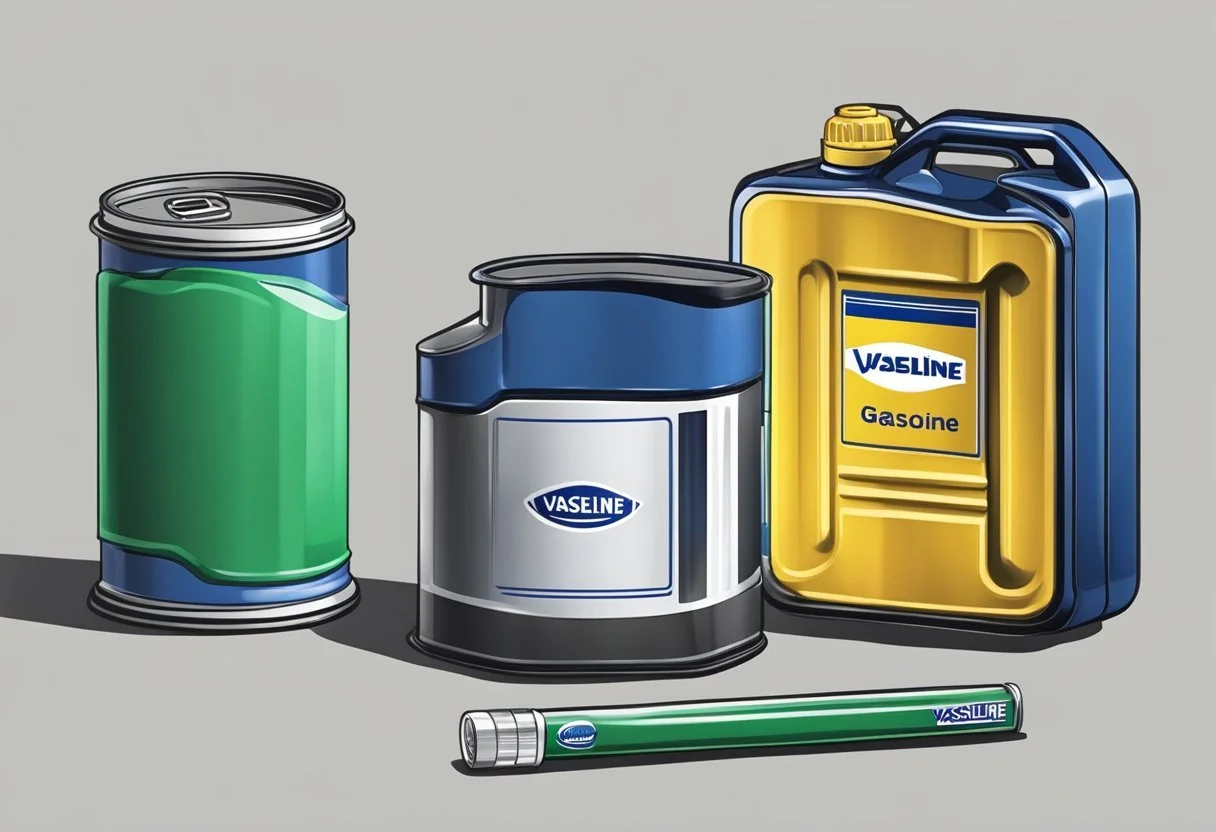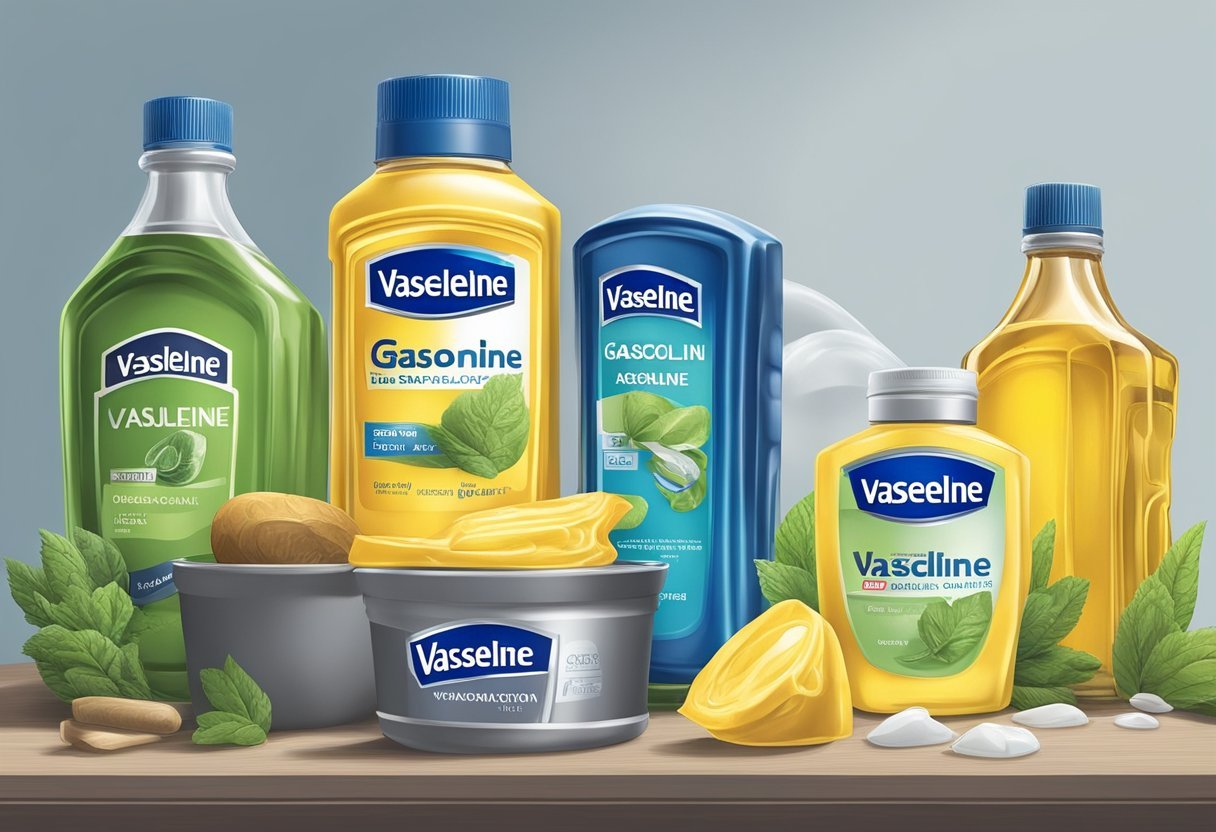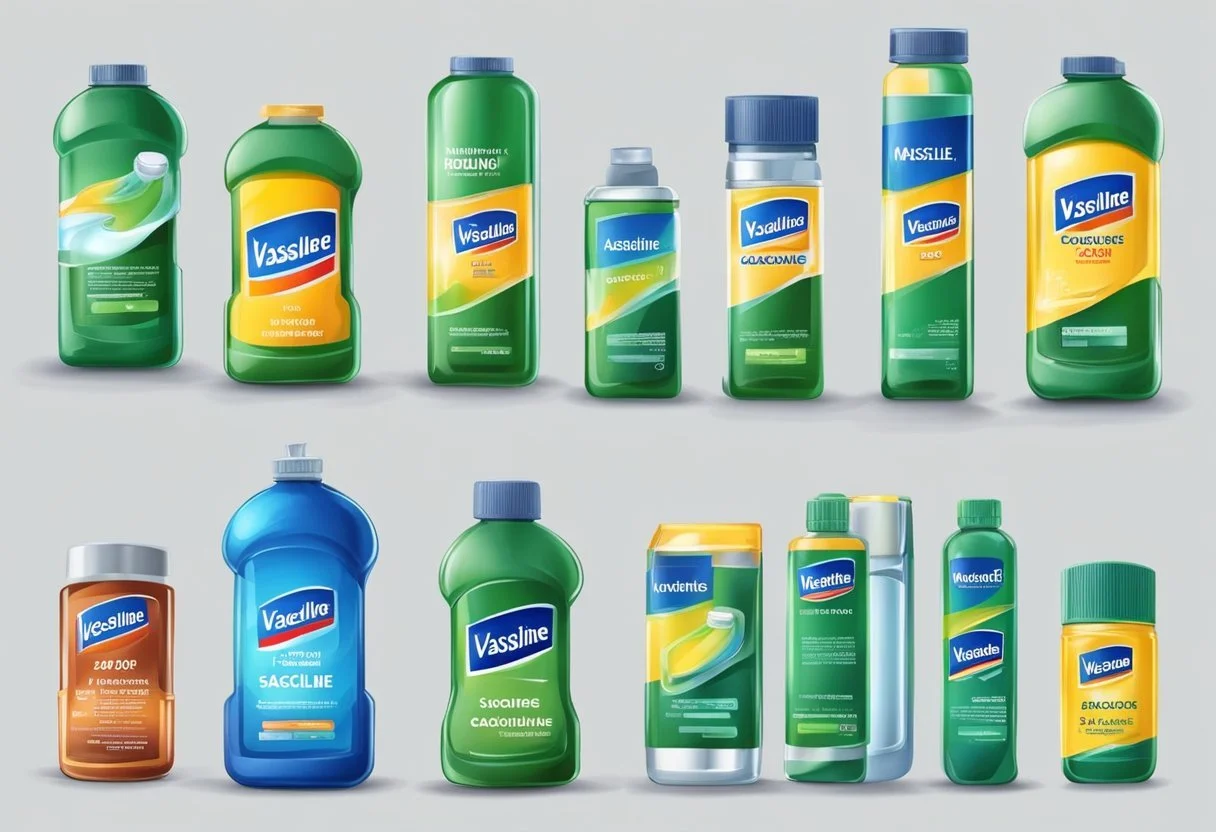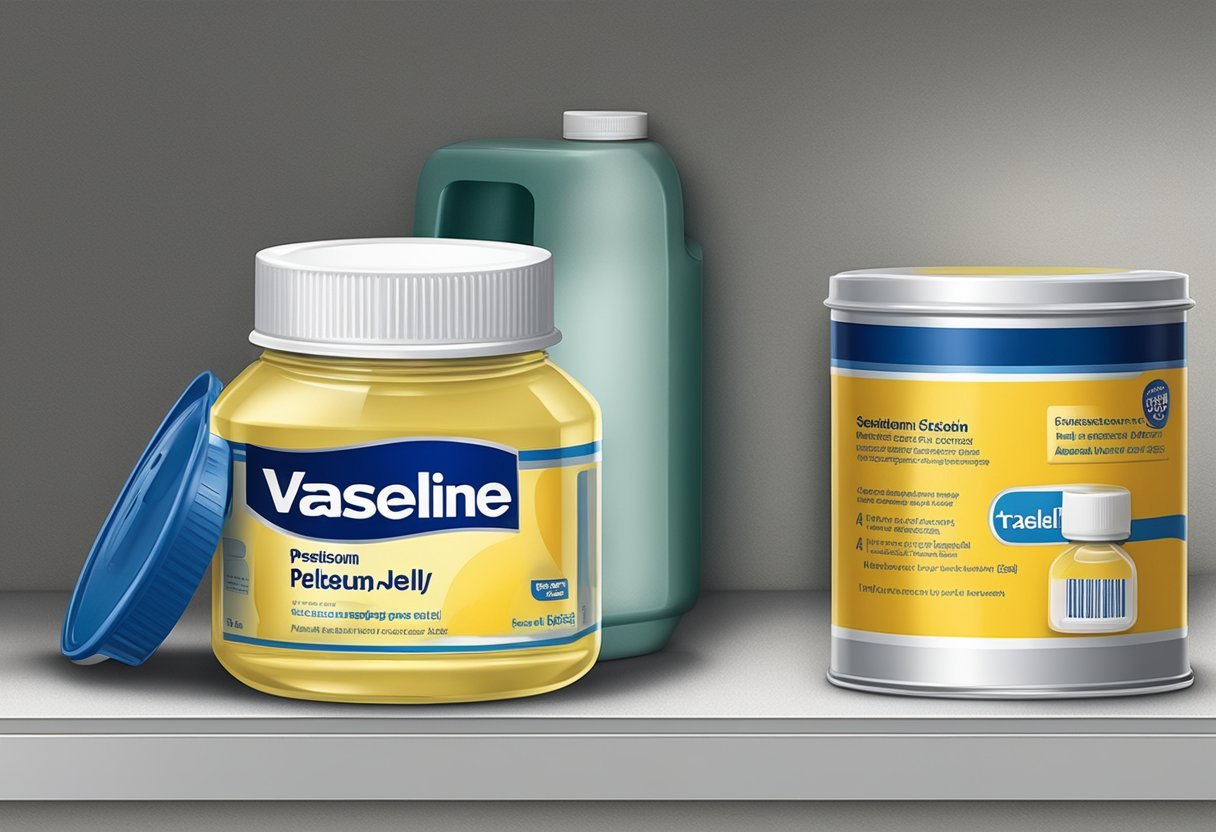Is Vaseline Safe?
Unraveling Its Link to Gasoline
This article is part of our series on Natural Health
Discover > Natural Health > Is Vaseline Safe?
Vaseline, also known as petroleum jelly, is a common household item that has been used for various skincare and personal care needs for decades. Its popularity is often attributed to its affordable price, easy accessibility, and versatile nature in providing skin protection and moisture. However, the safety of using Vaseline has been a subject of discussion and curiosity due to its origins and connection to gasoline.
The substance is derived from a byproduct of the oil refining process, which has led many to question if there could be any link between Vaseline and gasoline. There may be concerns regarding exposure to harmful chemicals or potential risks to human health or the environment. It is essential to explore the scientific evidence and expert opinions to understand the true nature of Vaseline's safety.
In this article, we will delve into the history, ingredients, and manufacturing process of Vaseline to shed light on its potential health implications. We will also examine the research studies that have been conducted to date, evaluating its safety and efficacy for various applications. This information will provide a balanced and clear understanding of whether Vaseline is indeed safe for everyday use.
Understanding Vaseline
Vaseline, also known as petroleum jelly or wonder jelly, is a popular product in the world of skincare and healing. Vaseline® Jelly, the most widely recognized brand of petroleum jelly, has a reputation for its moisturizing and healing properties. This healing jelly is made from 100% pure, triple-purified petroleum.
Petroleum jelly comes from the by-products of the petroleum industry. Despite its association with gasoline, Vaseline is safe for topical use on the skin of humans and animals. The base ingredient for Vaseline is a semi-solid mixture of hydrocarbons that is refined and processed to achieve the desired consistency and texture.
Vaseline is an effective moisturizer due to its highly occlusive properties. When applied to the skin, it creates a barrier that locks in moisture, preventing it from evaporating into the atmosphere. This helps to keep the skin hydrated and promotes skin healing in cases of minor cuts, burns, or abrasions.
Although Vaseline shares a common origin with gasoline, there are clear distinctions in their production and uses. Gasoline is a highly flammable and volatile liquid that requires further processing and refining before it is suitable for use in vehicles. On the other hand, Vaseline undergoes a triple-purification process to remove impurities and ensure its safety for topical application.
In summary, Vaseline is a safe and effective product, widely used for its moisturizing and healing abilities. Its connection to the petroleum industry may raise concerns, but the refining and purification processes ensure a safe product that benefits countless individuals for various skin conditions and care routines.
The Ingredients of Vaseline
Vaseline, often referred to as petroleum jelly, is a versatile product with a variety of applications. The primary ingredients found in Vaseline include mineral oils, hydrocarbons, and waxes. These ingredients work together to create a semi-solid, smooth, and colorless product that helps to lock in natural moisture.
Mineral oils, the primary component of Vaseline, are produced from crude oil or petroleum. These oils undergo a rigorous refining process to remove impurities and ensure the product is safe for use on human skin. Vaseline's formulation, through its refined mineral oil content, helps create a protective barrier on the skin which aids in the preservation of natural moisture and the prevention of moisture loss.
Whereas hydrocarbons, another key ingredient in Vaseline, contribute to its unique consistency and texture. They are composed of hydrogen and carbon molecules and can be found in various forms, including both natural and synthetic. Hydrocarbons in Vaseline work as an emollient, softening and soothing the skin instantly.
Waxes are responsible for Vaseline's distinct solid-yet-pliable nature. Waxes found in Vaseline primarily come from the paraffin wax family, derived from petroleum sources. These waxes undergo a similar refining process as mineral oils to eliminate impurities and produce a safe, skin-friendly product.
Overall, the ingredients of Vaseline - mineral oils, hydrocarbons, and waxes - work together to provide a highly effective and widely used skincare product. Its ability to lock in natural moisture and form a protective barrier promotes skin health and prevents moisture loss.
Vaseline As Skin Care Product
Vaseline and Dry Skin
Vaseline has been a popular skincare product for many years due to its ability to lock in moisture and provide relief from dry, chapped skin. As an emollient, it creates a barrier on the skin's surface, preventing moisture loss and keeping the skin hydrated. People find Vaseline particularly useful during cold weather, as it can help alleviate the discomfort caused by chapped lips and dry hands.
Vaseline for Skin Problems
Vaseline is beneficial for those with skin conditions such as eczema and rashes, as it can soothe redness, itching, and swelling. However, it's important to recognize that Vaseline is not a cure for these conditions – it should be used alongside prescribed treatments to manage symptoms effectively. Additionally, Vaseline may not be suitable for everyone, especially those with acne-prone skin, as its heavy texture could potentially worsen breakouts.
Vaseline and Skin Protection
Aside from its moisturizing properties, Vaseline offers protection to the skin. Its occlusive nature helps shield cuts, scrapes, and minor skin abrasions from dirt and bacteria. In certain situations, Vaseline can also be applied to animal bites and minor burns (though not to serious burns). However, always consult a healthcare professional before using Vaseline for such purposes.
Vaseline and Infant Use
Many parents use Vaseline on their children, particularly to treat diaper rash. The product's ability to create a barrier on the skin can alleviate discomfort and protect baby's sensitive skin from further irritation. However, it is essential to note that Vaseline is for external use only and should be kept away from infants' eyes and mouths.
Safety of Vaseline for External Use
Vaseline is considered safe for external use on every skin type. It is a non-toxic and non-irritating product, making it an excellent option for most people. However, it is crucial to avoid using the product near the eyes and on open wounds unless advised by a healthcare professional.
Non-Comedogenic Nature of Vaseline
Despite its thick texture, Vaseline is regarded as a non-comedogenic product. This means it does not clog pores, which is ideal for those with acne-prone or sensitive skin. However, individual reactions to skincare products may vary, and if you notice any adverse effects, it's best to discontinue use and consult a dermatologist.
Maintaining Skin Health with Vaseline
Incorporating Vaseline into your skincare routine can help maintain healthy-looking, smooth skin. By providing hydration and protection, Vaseline ensures that the skin remains moisturized, especially during harsh weather conditions. For optimal results, apply Vaseline to clean, damp skin to lock in moisture and keep hands and other dry areas looking and feeling their best.
Potential Drawbacks and Side Effects of Vaseline
Can Vaseline Be Carcinogenic
Although Vaseline is generally considered safe for use, there have been concerns about its possible carcinogenic properties, stemming from the fact that it is derived from petroleum. However, the purification process removes potentially harmful substances, and there is no concrete evidence to substantiate these claims. It is important to use Vaseline products from reputable sources, certified and tested for purity, to ensure safety.
Vaseline and WCAG Issue
One potential issue with Vaseline is its effect on the Web Content Accessibility Guidelines (WCAG) for people with disabilities. Vaseline's greasy texture can make it difficult or impossible for touch screen devices to work properly, presenting an obstacle for users who rely on these devices.
Is Vaseline Toxic
Vaseline is classified as non-toxic and is widely used in various cosmetic and personal care products. However, it is not completely free of risks. When ingested in large amounts, Vaseline may cause gastrointestinal discomfort or blockage, warranting medical attention. To avoid such incidents, always store Vaseline products out of the reach of children and pets.
Possible Allergic Reactions to Vaseline
While most people can use Vaseline without any issues, some individuals may experience allergic reactions or skin irritations. Common side effects of an allergy to Vaseline include skin redness, itching, and swelling. If you notice any of these symptoms after using Vaseline, discontinue its use and consult a healthcare professional. To minimize the risk of an allergic reaction, it is advisable to:
Perform a patch test before using the product on larger areas
Avoid using Vaseline if you have a known allergy to petroleum-based products
When to Seek Medical Advice
It is essential to seek medical advice when using Vaseline in a way that may pose risks to one's health. While Vaseline is generally safe for topical application, medical advice should be sought under specific circumstances.
If an individual experiences an allergic reaction, such as redness, itching, or rash, after applying Vaseline, they should consult a doctor. A health expert can provide alternative solutions and address any potential underlying causes of the reaction.
In the case of accidental ingestion, individuals must immediately contact a healthcare professional. Although Vaseline is non-toxic, consuming large amounts could potentially lead to complications. A doctor will appropriately evaluate the situation and provide necessary guidance.
Vaseline should never be used for wound care without expert approval, particularly for deep cuts or surgical incisions. Consulting a doctor will ensure proper wound care techniques and the prevention of complications such as infections.
Additionally, if any confusion or concerns arise about the proper use of Vaseline or its correlation to gasoline, it is crucial to seek expert advice. A healthcare professional can clarify misinformation and provide accurate information to ensure safe Vaseline usage.
Vaseline and the FDA
The FDA (Food and Drug Administration) plays a crucial role in regulating products such as Vaseline to ensure their safety for consumers. As a petroleum jelly, Vaseline is primarily comprised of a mixture of mineral oil and waxes, resulting in a semi-solid product.
The FDA maintains strict regulations over the production and usage of petroleum jellies. These include guidelines for purity and safety, especially for products marketed for personal care and cosmetic use. Vaseline's ingredients must meet the specifications listed in the United States Pharmacopeia (USP) as well as the FDA's Code of Federal Regulations (CFR), ensuring that the product is safe for intended use.
In addition to these regulatory guidelines, Vaseline manufacturers implement their own quality control measures. Customers can rest assured of Vaseline's safety, as it undergoes rigorous testing to ensure it complies with global safety standards. To date, there have been no reported cases of Vaseline being linked to any harmful effects or gasoline contamination.
While the manufacturing process of Vaseline does involve petroleum as a raw material, it undergoes a comprehensive purification process to eliminate any harmful substances, including polycyclic aromatic hydrocarbons (PAHs). The resulting product is safe for use as a skin protectant and moisturizer.
As with any other skincare product, consumers should always follow the FDA-recommended precautions when using Vaseline. Users should avoid applying Vaseline to open wounds, active infections, or irritated skin. Additionally, it is crucial to keep the product out of the reach of children and pets and to avoid ingesting it.
In summary, the FDA's regulations and strict guidelines, together with the manufacturer's adherence to quality control measures, ensure that Vaseline is a safe product. By following the recommended precautions, consumers can confidently use Vaseline as part of their skincare routine without any concern for their well-being.
Vaseline Usage and Storage
Vaseline is a popular and versatile product, commonly used as a moisturizer, lubricant, and protective barrier. It is important to store and use Vaseline properly to ensure safety and effectiveness.
When using Vaseline as a lubricant, it is essential to remember that it is not compatible with latex products, like condoms. It can weaken the latex material, increasing the risk of breakage. It is also not recommended for use during a shower, as it can become slippery and make surfaces difficult to navigate, increasing the risk of falls.
To maintain the quality and safety of your Vaseline, proper storage is crucial. Store Vaseline in a cool, dry place away from direct sunlight and heat sources. Exposure to extreme temperatures can cause the product to become too firm or too soft, compromising its effectiveness.
It is also important to avoid contaminating your Vaseline jar by using clean hands or utensils when scooping out the product. This can help prevent the introduction of bacteria and prolong the shelf life of the product.
In summary, using Vaseline as a moisturizer or lubricant can be safe if one remembers the incompatibility with latex products and the risks associated with using it in the shower. Proper storage and handling are key to ensuring the safety and effectiveness of Vaseline. Utilize these measures to get the most out of your Vaseline and ensure its safe and proper use.
Natural Health: Simple and Effective Solutions
Natural health enthusiasts are always on the lookout for simple and effective solutions to common health concerns. For example, natural homemade toothpaste can be made using simple ingredients like baking soda (how long does baking soda last?), coconut oil, and peppermint essential oil. It's a great alternative to store-bought toothpaste that may contain questionable ingredients. Birth control pills have been known to deplete certain vitamins and minerals, so it's important for women to supplement with greens, like spinach and kale, to maintain optimal health. For breastfeeding mothers, incorporating greens like spinach and kale into their diet can also provide essential nutrients for both mother and baby. Finally, making solid perfume at home is a great way to avoid synthetic fragrances found in many store-bought perfumes. Simple ingredients like beeswax, coconut oil, and essential oils can be used to create a natural and personalized fragrance. By embracing these simple and natural solutions, individuals can promote a healthier lifestyle and reduce their exposure to potentially harmful ingredients.
#vaseline petroleum jelly mineral oil #petroleum jelly products #jelly vaseline #skin moisture #oil workers #petroleum jelly's #cosmetic products #white petrolatum








